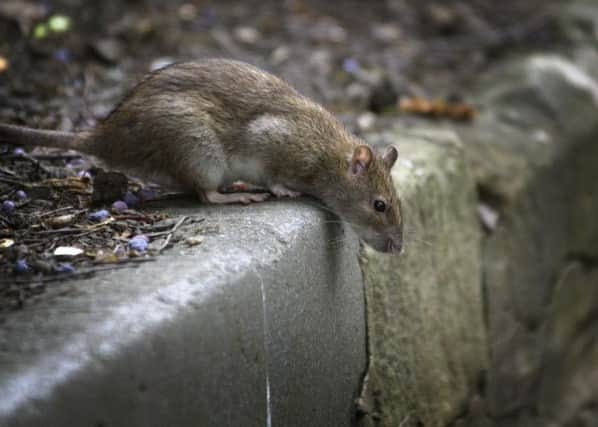Scottish scientist awarded £1m to study how ratcatchers fought plague


The “role of the rat in the development of epidemiology” is the subject of the new £990,164 Scottish research project.
Medical anthropologist Dr Christos Lynteris will lead a five-year project at St Andrews University to examine the scientific study of the rat and of the public health practices developed and deployed for controlling rats around the world after its role in the transmission of infectious diseases became known.
Advertisement
Hide AdAdvertisement
Hide AdMankind began a global war against the rat at the turn of the 19th century after it was discovered that the rodents carried deadly diseases like bubonic plague, leptospirosis and murine typhus.
As time went by, rat catchers even resorted to drowning rats in buckets of petrol to kill the animals along with their germ-transmitting fleas.
Dr Lynteris saidyesterday: “The project will explore how knowledge acquired through medical and epidemiological studies of the rat and knowledge acquired during the development and application of practical, public health measures of vector-control, rat-proofing, rat-catching and rat-poisoning contributed to our understanding of the way in which diseases harboured by animals are transmitted to humans, and of the role that different forms of animal-human contact play in this process of animal to human infection – known as zoonosis – is a key driver of global health risk today.”
A particular focus of the project will be how knowledge formed in the course of the “global war” against the rat during the period 1898-1948 contributed to the formation and development of epidemiological ideas about three key zoonotic mechanisms: the so-called “epizootic “ – an epidemic among animals – as an amplifier of human infection; the disease reservoir as a key mechanism of pathogen maintenance; and species invasiveness as a driver of the spread of diseases within and between animal species.
Funding for the study, which gets under way next month, comes from the Wellcome Trust, which has granted Dr Lynteris its Investigator Award in the Humanities and Social Sciences.